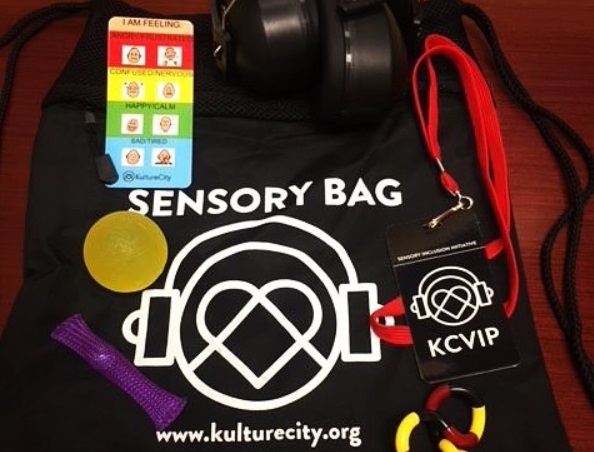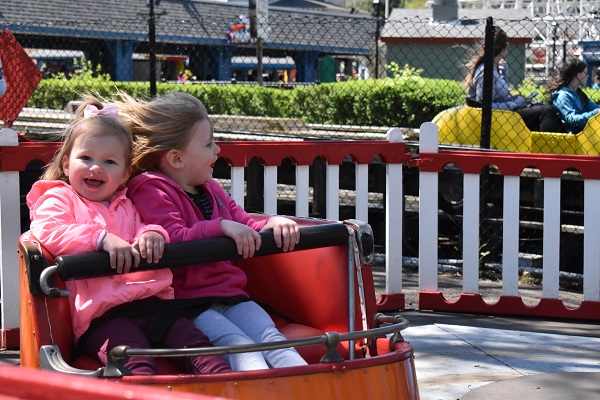3 new sensory-friendly programs for Pittsburgh kids
Approaching happy crowds, bright lights and lively music builds excitement – except for families of a child with autism or sensory sensitivities. For those kids, noisy venues with lots of people can trigger adverse responses.
A growing number of Pittsburgh arts organizations and entertainment facilities have responded to the need for sensory-friendly provisions with pioneering efforts. Pittsburgh Ballet Theatre, for example, was the first professional ballet company in the country to present a sensory-friendly performance of “The Nutcracker.” And the Children’s Museum of Pittsburgh schedules Sensory Friendly Afternoons.
Joining the trend are these three Pittsburgh organizations, which are introducing groundbreaking sensory-friendly initiatives:
Carnegie Museum of Natural History
Carnegie Museum of Natural History celebrated National Autism Awareness Month in April by launching its new Sensory Friendly Saturday program.
Families can enjoy a number of Sensory Friendly Saturdays throughout the year. Opening 90 minutes before regular hours, museum staff will provide tours of the exhibits and answer questions throughout the morning. Designated quiet zones will allow visitors to decompress and experience the museum at their own pace.
“We wanted to get our sensory-friendly offerings right,” says Dr. Eric Dorfman, the Daniel G. and Carole L. Kamin director of Carnegie Museum of Natural History.
To that end, the museum conducted focus groups and sensory-friendly trial runs. Feedback from families was both positive and constructive.
“One important goal that emerged was making sure we offered our programming on peak visitation days when our museum is most in demand,” Dorfman says.

Pittsburgh Zoo & PPG Aquarium
Pittsburgh Zoo & PPG Aquarium in Highland Park is the first zoo in Pennsylvania to be certified sensory inclusive. The zoo teamed up with KultureCity to develop appropriate areas and events for those with sensory sensitivities.
Sensory bags are available for free at the Guest Services booth near the zoo entrance. The bags include noise-canceling headphones, fidget tools and verbal cue cards. Weighted lap pads can be requested, too, to help calm an anxious child.
The sensory certification process includes hands-on training to enable staff to recognize guests with sensory needs and respond appropriately.
“Our objective is to provide an inclusive and seamless experience for all guests for all events,” says Allan Marshall, the zoo’s vice president of internal affairs. “Through our partnership with KultureCity, we’ve been able to improve our ability to assist and accommodate guests with sensory needs.”

Kennywood Park
Just before the season opened, Kennywood Park earned designation as a Certified Autism Center. Work to enhance experiences continues.
The International Board of Credentialing and Continuing Education Standards (IBCCES) visited the park to assess its rides, attractions and general areas. That information will be compiled into a sensory guide to offer insight on each ride and attraction. The guide should be available here and at the park by the end of May.
Families can request sensory bags, which include earplugs, a fidget toy, squishy ball and coloring books and crayons. A limited number of noise-canceling headphones are available, too.
A quiet “room” for kids who need to decompress is designated at the Gazebo and Dancing Waters fountain area.
“This area is quieter than most of the park and has much less traffic through it as well, making it a great choice for a quiet spot to take a break,” says Marie Ruby, director of ride operations. For the time being, there won’t be a dedicated room, but park officials are looking to offer multiple options around the park.
For older kids’ personal needs, an adult changing table is being installed in a family restroom (opening mid-May) near the Star Refreshment Stand.
But the personal touch is the most important part of the IBCCES designation. Kennywood team members receive specialized training to ensure they can effectively cater to all kinds of needs. Instruction covers topics like emotional awareness, autism overview and motor skills.